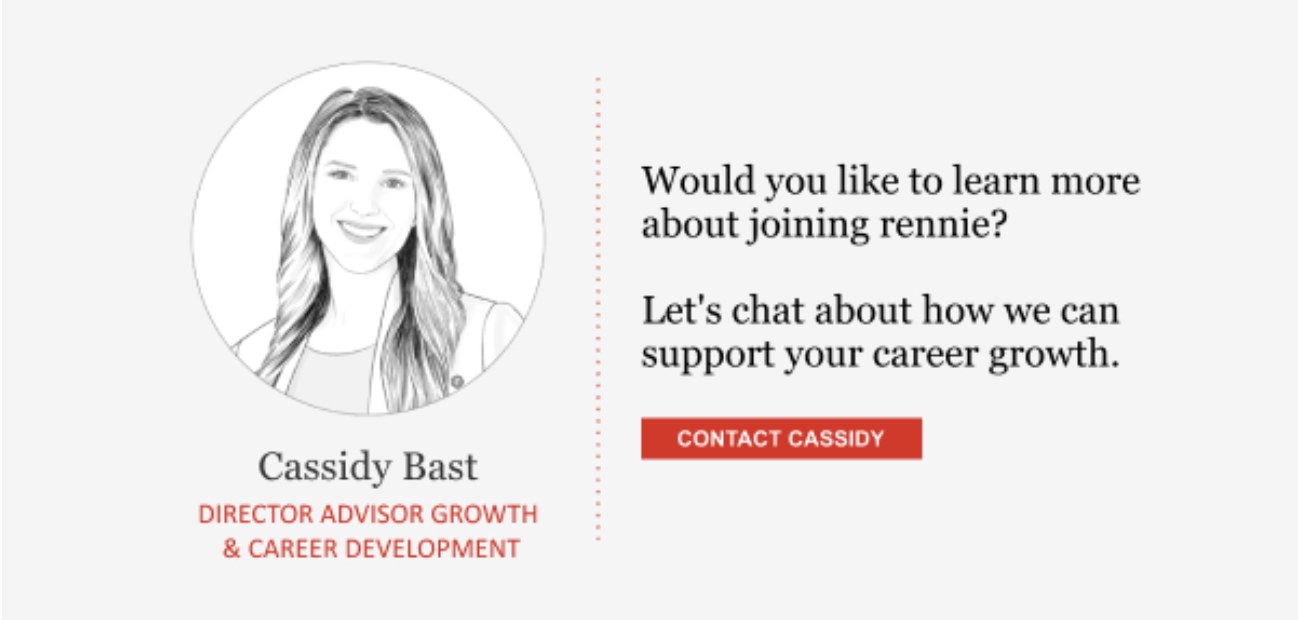On March 23rd, rennie hosted a panel discussion with six of our Sales Directors at the Museum of Vancouver to learn more about their careers. Sales Directors work directly with our developers and marketing and sales teams to create and lead sales programs. They each play a critical role in maintaining positive developer and realtor relationships to pave the way to successful sales projects.
Through the discussion, we gained insights into their day-to-day developer expectations, the dynamics of working in today's environment, and other insightful tips for success in project sales.
Q: An important aspect of your role as a Sales Director is managing expectations between the developer and the sales team. Can you speak to the viewpoint of both sides and your role between the two?
Chrys Li: Developers want to see every effort the sales team is making to sell their homes. As a Sales Director, a large part of the role is easing the concerns and tension between the developer and sales team.
For instance, although we provide traffic reports and interaction logins on Salesforce, it does not tell the whole story as those interactions could be industry people, a past purchaser's relative just coming in for a visit, or someone who isn’t qualified to buy. As a Sales Director, one of the most important aspects is explaining back to the developer a full rundown and the process of how those visiting receive their rating of "C", "D" or "NQ"; working to ensure any concerns are mitigated through the process.
In the current market, developers are looking at longer sales cycles which come with additional costs. Unlike the "sold out in 2 days" market of the past, today’s market requires more marketing spend, a rise in construction loan interest, and increasing costs of materials and labour. When the building is complete, if the homes aren’t sold, the developer will have to pay the strata fees, property tax, and potentially empty home tax, depending on the area, and considerable financing pressure from their lenders and partners. As you can imagine, they have a lot on the line, and everything adds up.
As a Sales Director, I try to always give rational explanations to my sales team of how the developer came to their decision coupled with economic and resale data so our sales team can collectively come to the best decisions to accomplish the most sales with the developer’s situation expertly considered.
Q: Rennie continues to invest heavily in technology to support our resale advisors, project advisors and brand. What role does technology play in the sales process, and how do you incorporate it into your work?
Renee Kozak: With a 16-person tech department continuously developing new services, our advisors are certainly positioned with some of the best technology in the industry ranging from dashboards that analyze an advisor's business offering them valuable metrics, to branded CMA's, powerful data-integrated websites and more.
From a pre-sales perspective, an exciting technology many of our projects are using is SmartPixel Technology. It’s innovating in our industry by providing potential buyers with an immersive and interactive virtual tour of the project. Agents can showcase high-quality, detailed floor plans, and 3D models of our buildings and homes. This helps buyers to visualize themselves within the space and better understand the layout. Additionally, SmartPixel Technology can be integrated with online platforms allowing buyers to select a home and easily convert it into a contract of purchase and sale.
Q: You spoke about how tempo sales build some of the best sales advisors. You shared your own personal experience in how you have leveraged your time in the tempo part of the sales cycle to build your expertise, can you elaborate on that?
Janice Lin: Tempo is where true sales skills become apparent. When the launch rush is over, sales advisors can tailor their sales experience to the buyer. It’s no longer about just giving a great overview but asking the right qualifying questions and building rapport along the way; people buy from those they like.
It takes persistence during tempo sales to book a tour, to follow up within 48 hrs but ideally the next day. It can take multiple follow-ups to get a buyer into our sales center again and get their deal on paper.
The negotiation starts with the art of massaging the deal. A buyer might ask for a large credit beyond the sales program or ask for every upgrade to be thrown in free of charge. This is where the fun begins: finding ways to rationalize the deal, knowing what is within reason, and justifying a deal that both tames the buyer and puts the developer's best interest at heart. When there are no incentive programs and every deal is glued together through tough negotiation, this is where true salesmanship is born.
Q: You’ve navigated through many different markets, including more challenging markets such as 2008 and 2019; how have you reinvented yourself to stay relevant and offer value in the marketplace?
Muna Tayour: In 2008-2009 when the banks were failing, I was at a project called Mantra. The project had come to a halt, the Presentation Centre closed, and the decision was made that the remaining homes would be sold at completion. I was out of work, so I made myself available for any projects within Mac BULK - my employer at the time. By continually putting myself out there, expressing I was still ready, willing and excited to work, I was one of the eight salespeople chosen to take part in a new endeavour, a unique project launch style that had never been done before.
What I learned through my experience with Mac BULK is that everything sells at a price. Homeowners always need a place to live and investors are always looking for an investment. I can confidently say Mac BULK brought back the real estate market from near death well ahead of its competitors. I’ve seen similar results from rennie in 2019 when we refined the way we approach tempo selling.
Tempo selling is one of the absolute best skill sets you can have in the market. What I learned through both downturns is to rely on my fundamental skills of working with buyers, taking my time, generating leads, having patience with the market and keeping an optimistic view. It all leads back to the basics: getting on the phone, meeting people in person, relying on your realtor relationships, and ensuring sellers feel confident you know what you're doing. Navigating an ever-changing market is an ongoing struggle, but at the end of the day, success depends on your approach.
Q: What qualities do you look for when bringing on an advisor to a rennie project? How do you assess their potential for success in the role and what advice would you give to someone who is interested in pursuing a career in project sales?
Holly Sekouri: When selecting an advisor for a project, I consider many qualities: whether they’re a team player, service-minded, their willingness to learn and sales ability.
Working well within a team is important in project sales. Most of the time you will be working with a sales manager, other sales advisors and coordinators. You have to be able to get along well with your team to foster an environment where each member of the team feels valued and can perform to the best of their abilities. When one person on the team wins, the whole team wins.
Our sales team is the host to every visitor at the presentation centre and creates the first impression for the project. As Bob Rennie says "Tell, Don't Sell." Being hospitality and service minded is of the utmost importance. Delivering an exceptional experience for visitors not only helps you sell homes but you’ll build relationships with realtors and the community. A service-first approach will create a comfortable, pressure-free environment where prospects feel taken care of.
Willingness to learn is crucial to project sales, as it is for your resale business. As the main point of contact for realtors and buyers, you’ll need an in-depth understanding of the pre-sale Purchase and Sale Agreement (PSA) and the Disclosure Statement and Amendments when applicable. It's important you stay up-to-date on new regulations under RESA (Real Estate Services Act) and REDMA (Real Estate Development Marketing Act) as well. Last but not least, learning to read architectural plans and understanding various types of construction and the intricacies of interior and exterior finishes will make you a stronger project salesperson.
Many people think that sales ability is innate, you either have it or you don't. While I do agree that some people seem born to sell, there are a lot of skills a salesperson can develop through practice. I’ve had the opportunity to learn from seasoned veterans and superstar salespeople. Through trial and error, I have learned what works for me and what doesn't. Stay true to yourself and be confident in your own sales style, ask good qualifying questions, and listen more than you speak.
The best advice I can give to anyone looking to get into project sales is to put your hand up and offer to help out with projects. Whether it be a launch, special event or vacation coverage, this will give you firsthand experience of what project sales life is like. There are so many opportunities to learn at rennie, including the Monday morning coffees, monthly sales meetings and the rennie exchange events that are held regularly throughout the year.
You can reach out to me or anyone on the Sales Director team if you want to learn more about the exciting and ever-changing world of project sales!
Our full-service brokerage will help you build your career through a supportive and collaborative environment, consistent mentorship, and the opportunity to align yourself with our reputation for real estate excellence. Learn more here.

advisor insight

